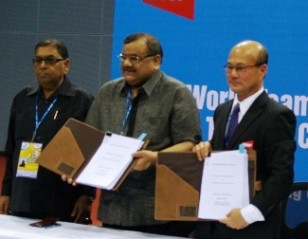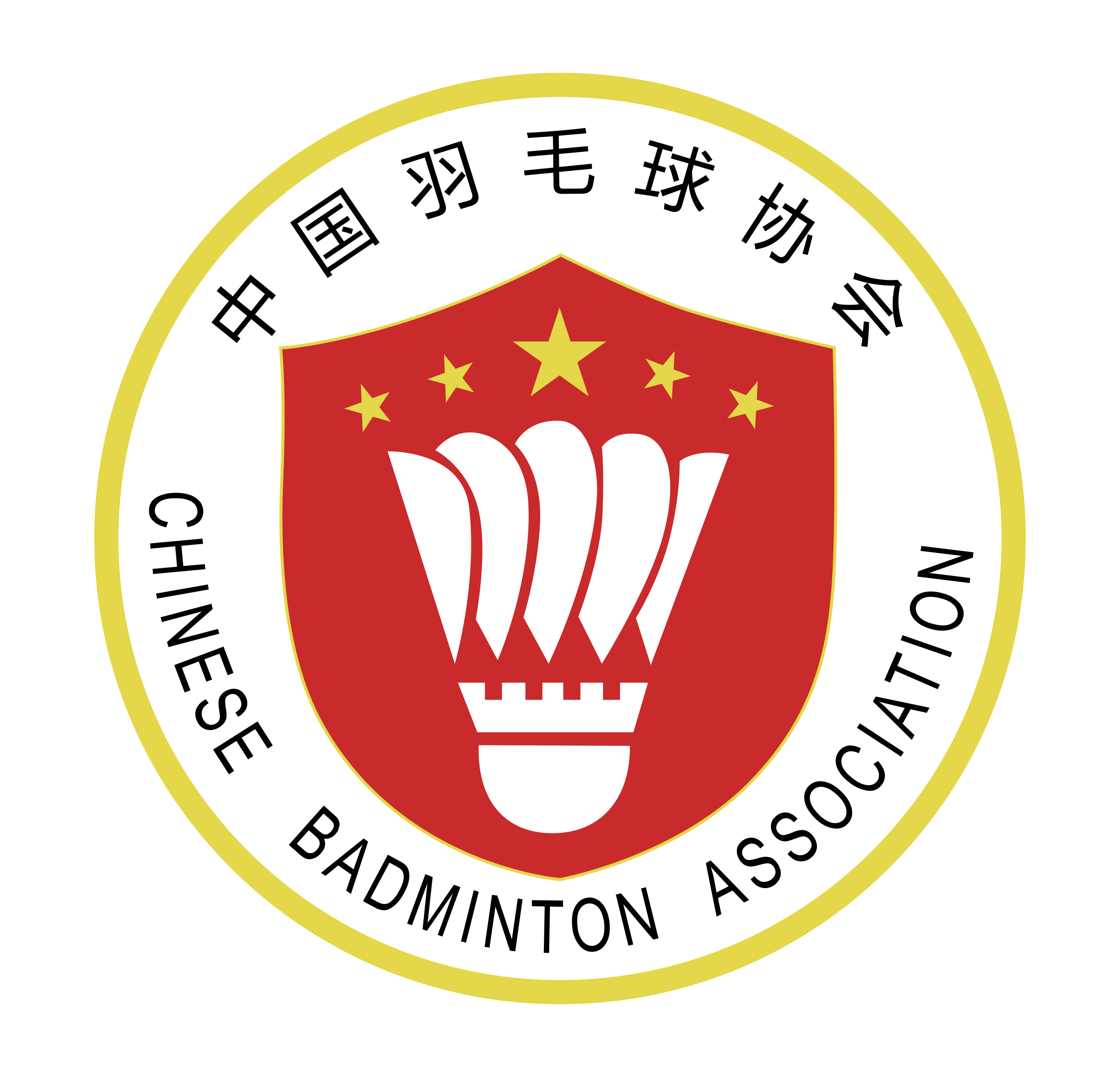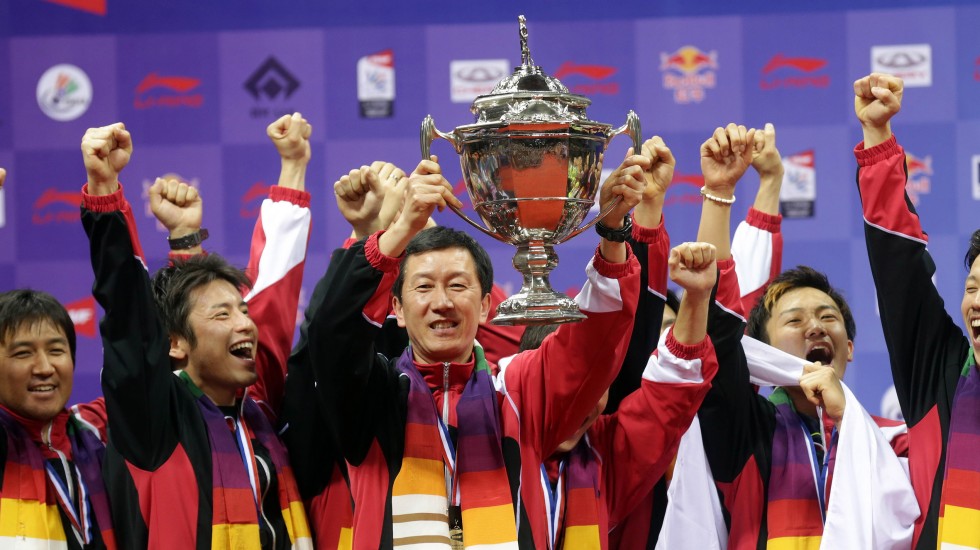
On This Day: Historic Thomas Cup Triumph for Japan
The Thomas Cup final held 25 May 2014 was one of the most dramatic events in the history of the World Men’s Team Championships.
China had dominated the previous decade, winning five successive Thomas Cup crowns, but in a sensational semifinal session, Japan trounced them 3-0. The Japanese charge was led by Kenichi Tago, whose opening match victory over Chen Long was built upon by Hiroyuki Endo/Kenichi Hayakawa, before Kento Momota showed steady nerves against Du Pengyu.
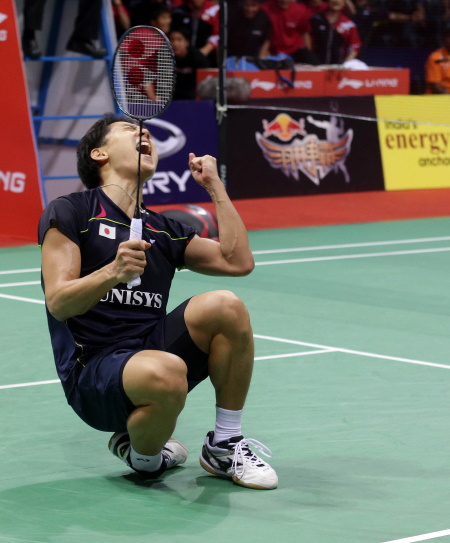
Lin Dan, slated to play third singles against Sho Sasaki, could only watch helplessly from the sidelines.
In the other semifinal, Malaysia proved too strong for Indonesia, wrapping up the tie 3-0.
Kenichi Tago was in inspirational form, having beaten Chen Long, Jan O Jorgensen and Rajiv Ouseph in previous matches, but the opening match of the final was almost a foregone conclusion as he was up against Lee Chong Wei. The Malaysian legend shot past the Japanese in 44 minutes to give his country the lead. Lee had once again led admirably from the front, winning all six of his matches to earn a shot at a title that he had never won.
The first doubles between Hiroyuki Endo/Kenichi Hayakawa and Hoon Tien How/Tan Boon Heong was on a razor’s edge before the Japanese edged ahead, 21-19 in the third game.
And then, with Kento Momota showing great maturity to hold off the previously unbeaten Chong Wei Feng in straight games, the momentum swung Japan’s way.
There was however another twist, as Goh V Shem/Tan Wee Kiong outgunned Takeshi Kamura/Keigo Sonoda to level the tie for Malaysia.
It was down to Takuma Ueda for Japan and Liew Daren for Malaysia. The lead shifted hands, with fortunes swinging one way and then the other. Liew, with his attacking game, was the more adventurous, but at the very end, and with the pressure bearing down, the Malaysian misfired a couple of smashes. That was all it took for the steady Ueda to see Japan through to their greatest men’s team triumph in history, and he was soon buried under an avalanche of his teammates’ bodies, while Liew stood by, inconsolable in defeat.
Thomas & Uber Cup News
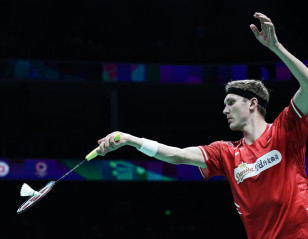
Net Finesse Sees Axelsen Through 28 April 2024
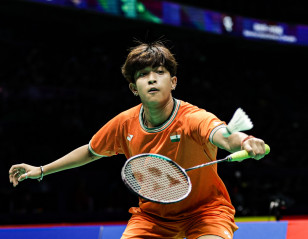
India’s Second-String Grab their Chance 27 April 2024
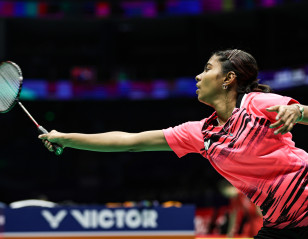
Outclassed, but Uganda Win Hearts 27 April 2024
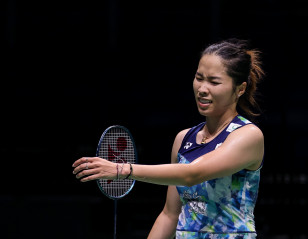
Intanon Searching for Best Version of Herself 27 April 2024

Where To Watch: TotalEnergies BWF Thomas & Uber Cup Finals 2024 27 April 2024
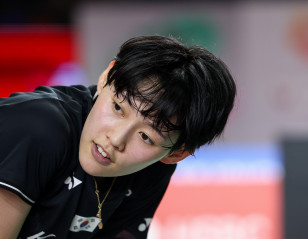
Defending Champs Feeling the Pressure 25 April 2024
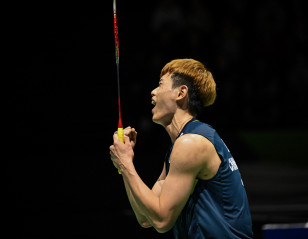
Thomas Cup Preview: Chinese Taipei the Team to Watch 25 April 2024
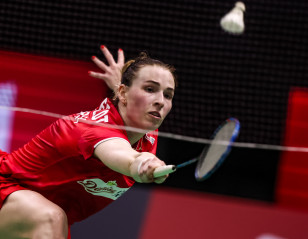
Landmark Edition for Remarkable Veterans 24 April 2024
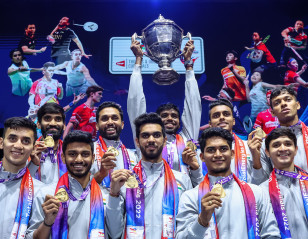
India, Two Years On 23 April 2024
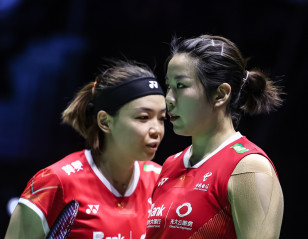
Uber Cup Preview: Can Chengdu Spring a Surprise? 22 April 2024
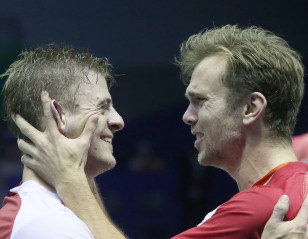
Three From Time: Thomas Cup Champs in China 21 April 2024
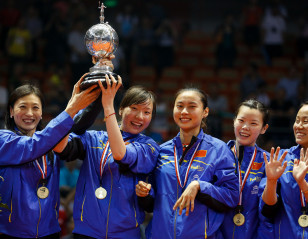
Indomitable at Home 20 April 2024
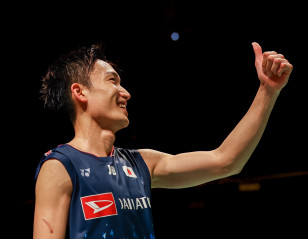
A Champion’s Last Tango 19 April 2024
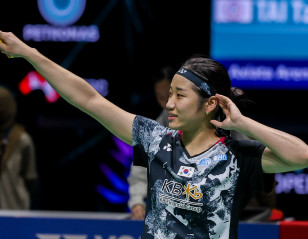
Bangkok to Chengdu: An Se Young Leads the Way 18 April 2024
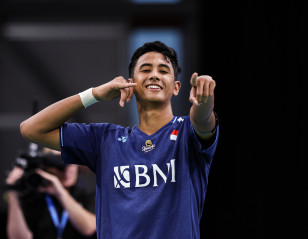
Rising Stars Farhan, Miyazaki in Thomas, Uber Squads 16 April 2024
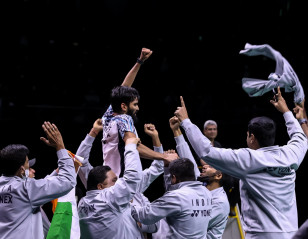
Defending Champs in Action on Opening Day 12 April 2024
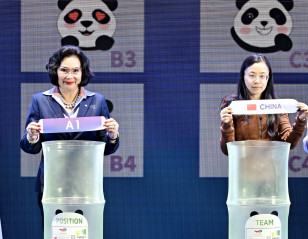
Defending Champs India in Tricky Group 22 March 2024
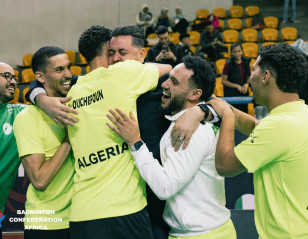
Qualifying Teams for TUC Confirmed 26 February 2024
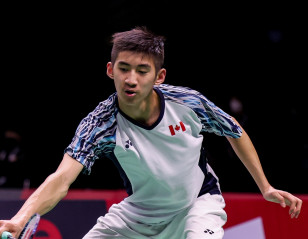
Pan Am Championships: Canada Showcase Supremacy 19 February 2024
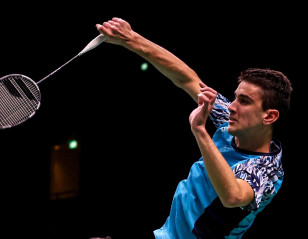
African Championships: Mammeri Excels Once Again 19 February 2024
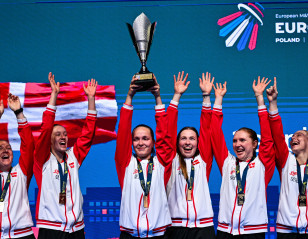
European Team Championships: Denmark Stretch Dominance 19 February 2024
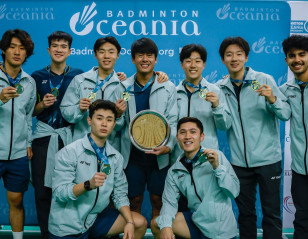
Oceania Team Championships: Australia Maintain Supremacy 18 February 2024
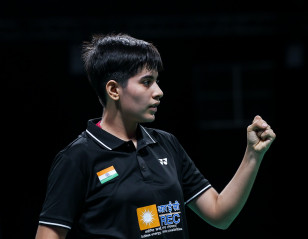
Asian Championships: Kharb Emerges Star of India’s Triumph 18 February 2024
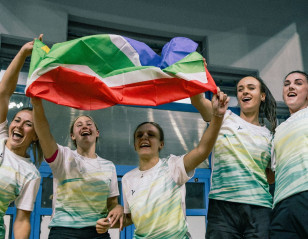
Africa Team Championships: South Africa on Top After 12 Years 16 February 2024
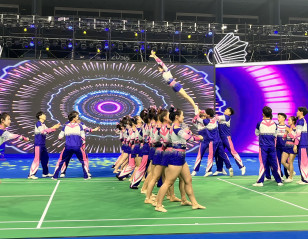
Chengdu Ready for TUC 2024 23 November 2023

Fanatics of TotalEnergies | Episode 1: Bangkok Edition 8 June 2022
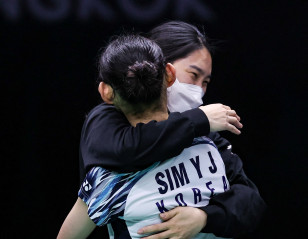
Kim and Sim Repay Coach Sung’s Faith 6 June 2022
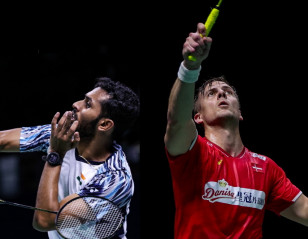
The Tie-Breaker: Two Approaches 1 June 2022
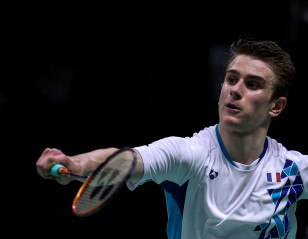
Alex Lanier Sets Sights on Top 15 30 May 2022

Teeraratsakul Twins: Pop Starlets of Badminton 28 May 2022
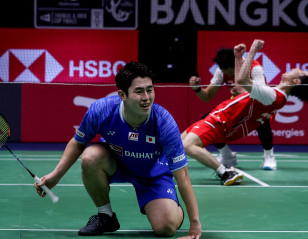
TUC Review: Most Memorable Matches 24 May 2022
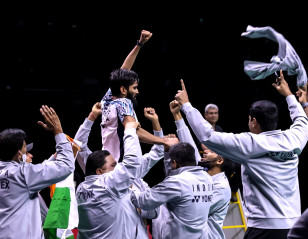
Top Takeaways from the TUC 23 May 2022
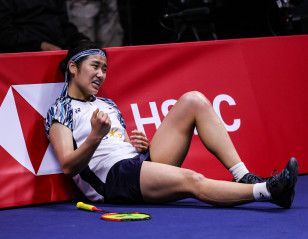
How An Se Young Powered Korea’s Fightback 21 May 2022
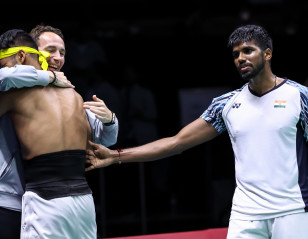
Another Arrow to Mathias’ Bow 20 May 2022
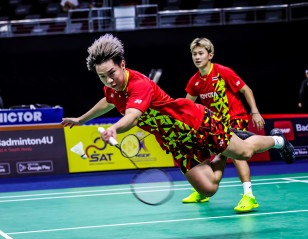
Meet ‘Ben’ and ‘Oat’, Diving Duo Who Went Viral 17 May 2022
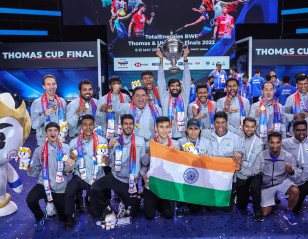
‘What a Day for Indian Badminton’ 16 May 2022
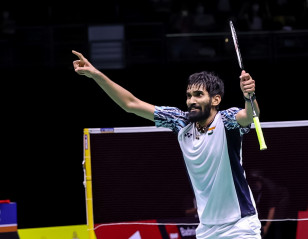
India Complete Ascent to Summit 15 May 2022
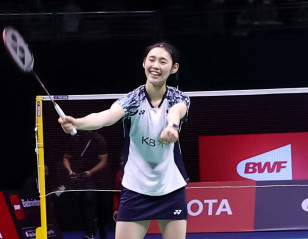
Sim Yu Jin Stars in Korean Fairytale 14 May 2022
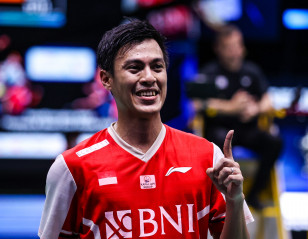
‘Best Moment of My Career’ 14 May 2022
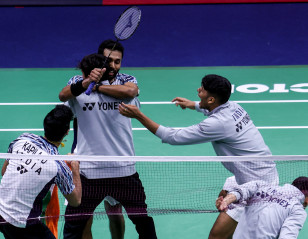
History Made as India Enter Thomas Cup Final 14 May 2022
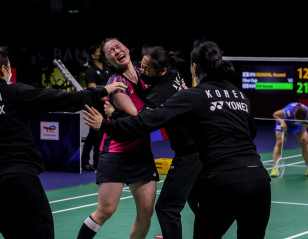
Mission Kim-possible: Korea Shock Japan 13 May 2022
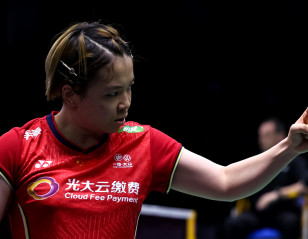
‘Defeat at Bangkok 2018 Spurred Us On’ 13 May 2022
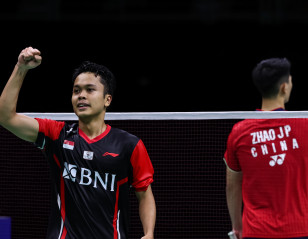
Ginting: Captain Setiawan a Great Support 13 May 2022
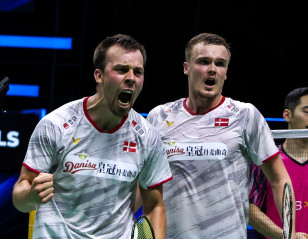
Denmark Climb Back from the Brink 13 May 2022
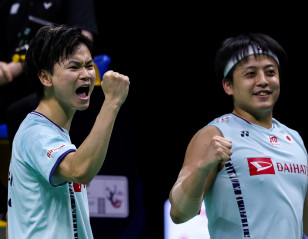
Japan Refuse to Cave In 12 May 2022
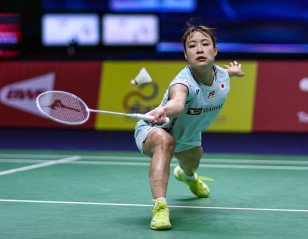
Okuhara Tames Early Jitters to Get Job Done 12 May 2022
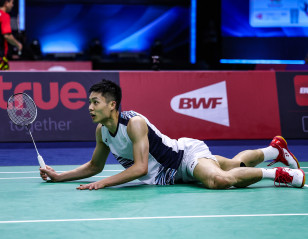
Chou and Co ‘Fighting’ for Elusive Semis Spot 12 May 2022
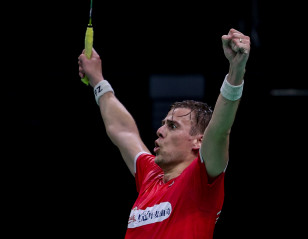
Vittinghus Sees Denmark Through 12 May 2022
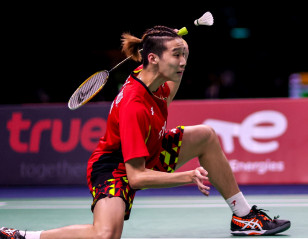
Teen Stars in Thai Thriller 11 May 2022
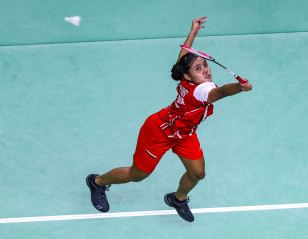
Dad’s How Prasista Does It 11 May 2022
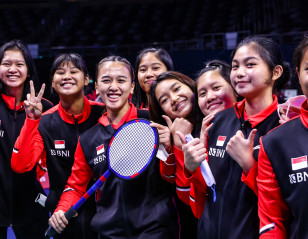
Eye on Future, Indonesia’s Young Women Impress 11 May 2022
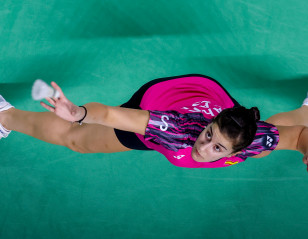
’60 Per Cent’ Marin Leads Spain to Victory 10 May 2022
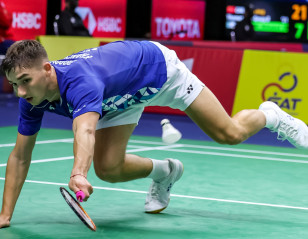
Day After Ultramarathon, Christo Soldiers On 10 May 2022
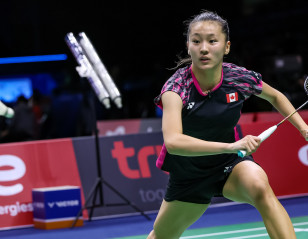
Canadians Impress in Gutsy Defeat 10 May 2022
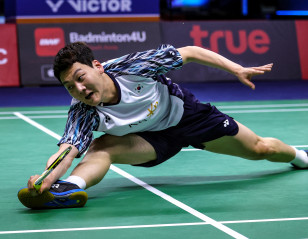
Korea Scramble Against Fired-Up Singapore 10 May 2022
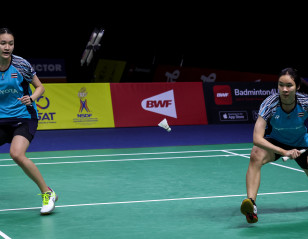
Sister Act Spurs Thais 9 May 2022
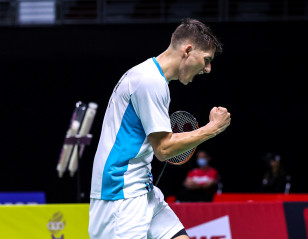
Plucky French Go Down Fighting to China 9 May 2022
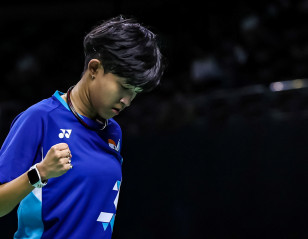
Stubborn India Quell Canadian Challenge 9 May 2022
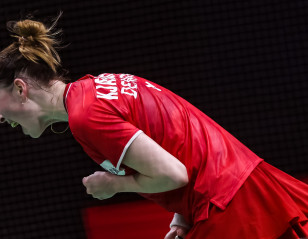
‘Relieved’ Kjaersfeldt Seals Danish Comeback 8 May 2022
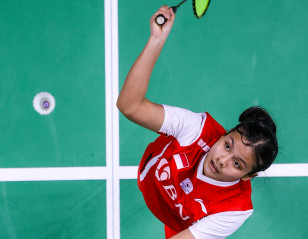
Cahya Dewi Leads Indonesian Rout of France 8 May 2022
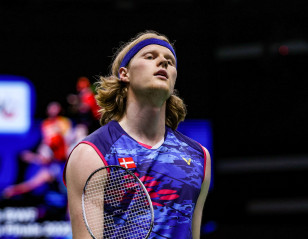
‘I Know I Gave Everything’ 7 May 2022

Sung Ji Hyun Backs Young Team to Go All the Way 7 May 2022
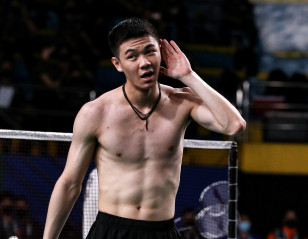
Group D Preview: Malaysia, Korea Could Provide the Fireworks 6 May 2022
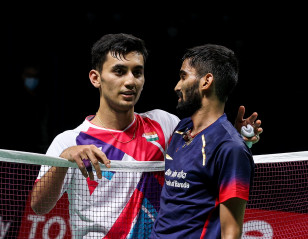
Group C Preview: India Could Go Far in Thomas Cup 5 May 2022
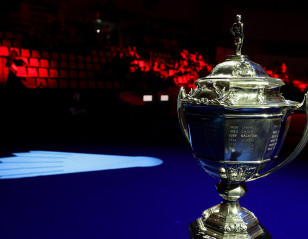
New Zealand Out; Team USA In 4 May 2022
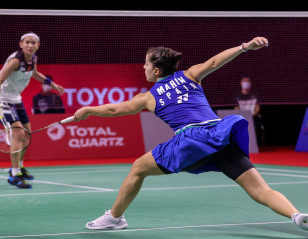
Group B Preview: Titanic Battles Up Ahead 4 May 2022
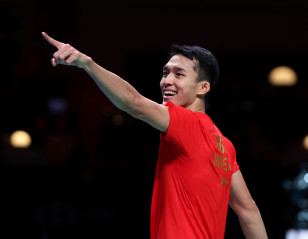
Group A Preview: In-Form Christie Leads Indonesia’s Campaign 3 May 2022
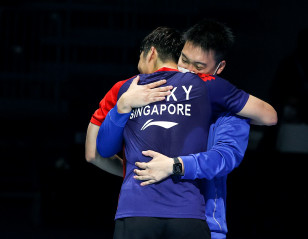
Vantage View of a World Champion | Part II 24 April 2022
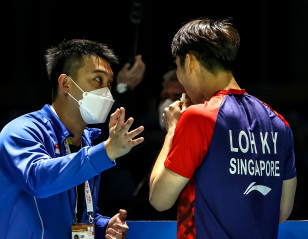
Vantage View of a World Champ 23 April 2022
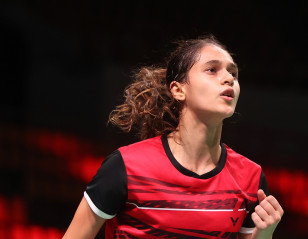
Nour Youssri: ‘Want to Make Badminton Famous in Africa’ 19 April 2022

Defending Champions Indonesia in Tricky Group 1 April 2022
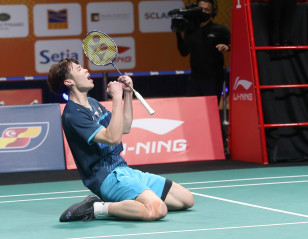
Maiden Titles For Malaysia, Indonesia 21 February 2022
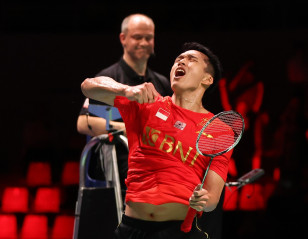
2021 in Review: Indonesia’s Gritty Thomas Cup Triumph 29 December 2021
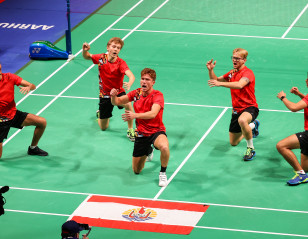
2021 in Review: Newcomers Tahiti Add Freshness, Colour 28 December 2021
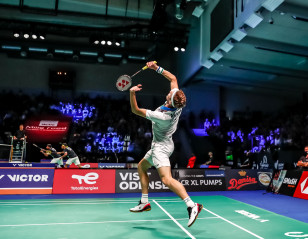
Tournament Calendar for 2022 Revealed 28 October 2021
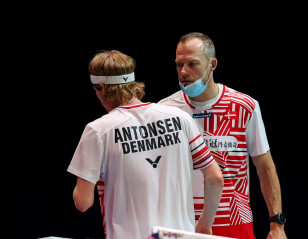
Hats Off to Indonesia, Says Kenneth Jonassen 20 October 2021
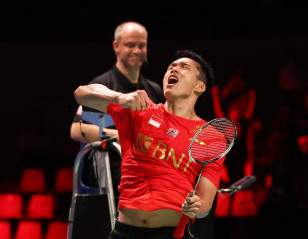
‘This Is For My Big Brother’ 19 October 2021
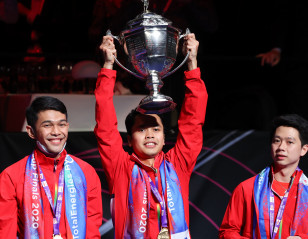
Indonesia’s 19-Year Wait for Thomas Cup Ends 18 October 2021
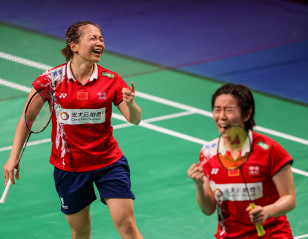
Chen and Jia Inspire Magnificent Chinese Triumph 17 October 2021
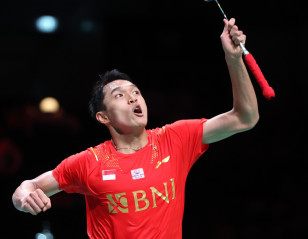
Indonesia Ride Jonatan Christie Wave 17 October 2021
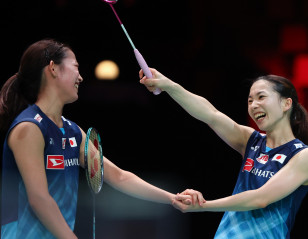
Japan, China in Uber Cup Final 16 October 2021
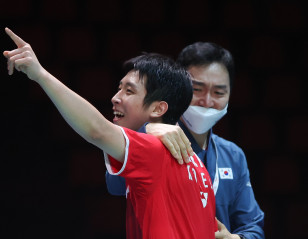
Proved a Point, Says Heo After Second Takedown of Momota 15 October 2021
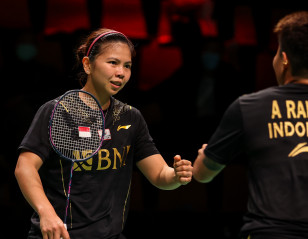
With Another Epic Example, Polii Hands Over Baton 15 October 2021
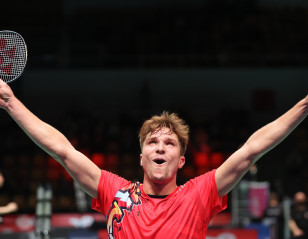
Remi Rossi and the Value of a Win for Tahiti 14 October 2021
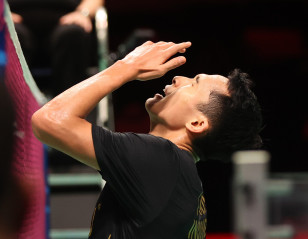
Indonesia, Thailand Survive Group of Death 13 October 2021
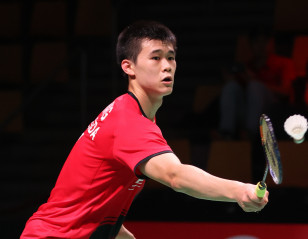
Nearly There, But Not Quite 13 October 2021
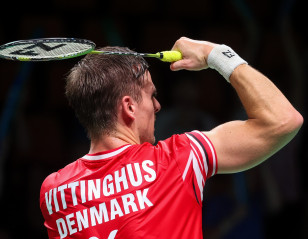
Battle-Hardened Veteran Revels in Familiar Role 12 October 2021
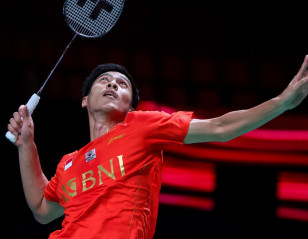
Wangcharoen Strikes Early but Indonesia Prevail 12 October 2021

Camilla Martin Wonders – ‘How Did I Do It?’ 11 October 2021
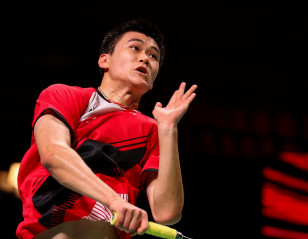
Training Stint With Gade Aids Brian Yang’s Rapid Rise 11 October 2021
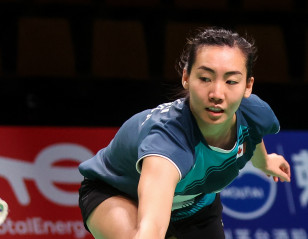
On Injury-Hit Day, Michelle Li Takes a Stance for Self-Care 10 October 2021
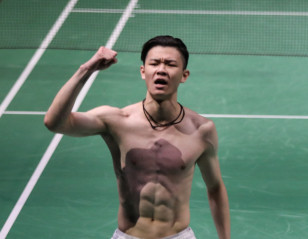
‘I’ve Grown to Become a Mature Player’: Lee Zii Jia 10 October 2021
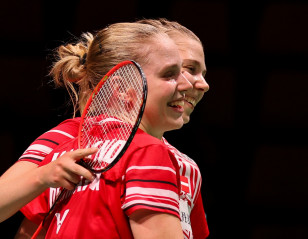
Best Friends Take Denmark Home 10 October 2021
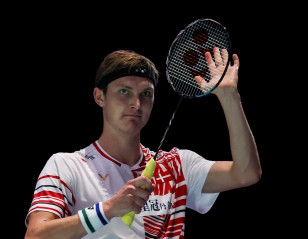
‘Dream Coming True, Playing Thomas Cup on Danish Soil’ 9 October 2021
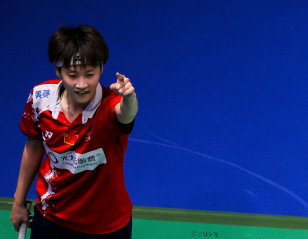
Group D Preview: China Have the Depth to Retake Uber Cup 9 October 2021
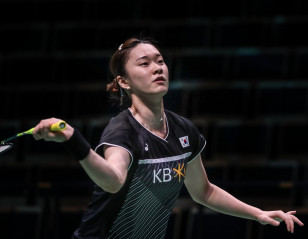
Group C Preview: For Korea, Kim Gaeun’s Form Will Be Key 8 October 2021
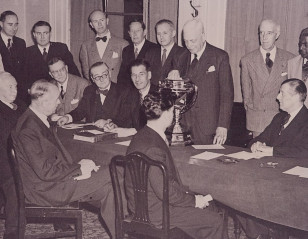
The Thomas Cup Story, as Recalled by an Icon 7 October 2021
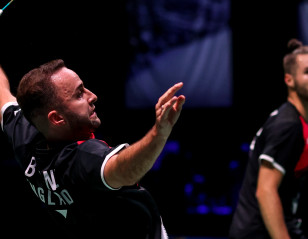
Injury-Hit England Withdraw From Thomas Cup 6 October 2021
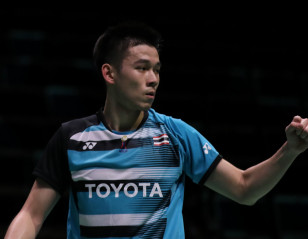
Group A Preview: Indonesia, Chinese Taipei Will Be Wary of Thailand 6 October 2021
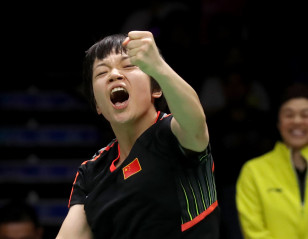
China Feature in Opening Uber Cup Tie 30 August 2021

Hosts Denmark in Challenging Group 18 August 2021

TUC 2020 Postponed; Denmark Open to Proceed 15 September 2020
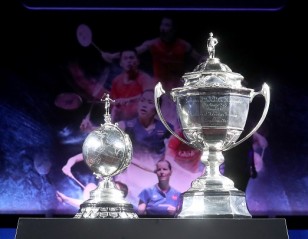
Update on TOTAL BWF Thomas and Uber Cup Finals 2020 12 September 2020
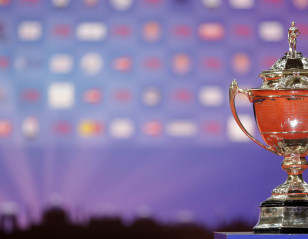
Herbert Scheele’s Thomas Cup Story 3 September 2020

BWF Ready for the Return to International Badminton 28 August 2020

BWF Announces Adjusted Tournament Calendar for 2020 27 August 2020

TOTAL BWF Thomas & Uber Cup Finals 2020 Draw 3 August 2020
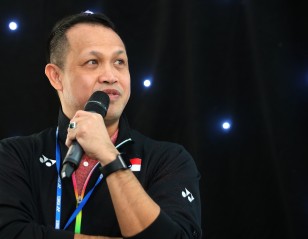
Thomas Cup Flashback: From Setback to Glory 24 May 2020
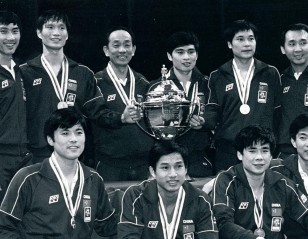
On This Day: China Lift Thomas Cup at First Time of Asking 21 May 2020
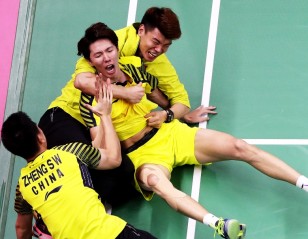
Flashback: TUC 2018 – China’s Young Guns Come Good 21 May 2020
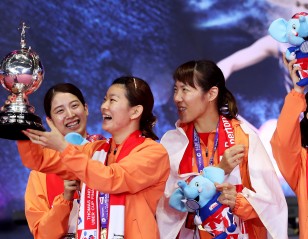
Flashback: TUC 2018 – Japan’s Well-Earned Triumph 18 May 2020

New Dates for TOTAL BWF Thomas and Uber Finals 2020 29 April 2020

Update on TOTAL BWF Thomas and Uber Cup Finals 2020 7 April 2020
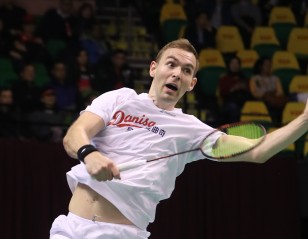
Conrad-Petersen to Bid Adieu After Thomas Cup 27 March 2020

TOTAL BWF Thomas and Uber Cup Finals 2020 Postponed 20 March 2020
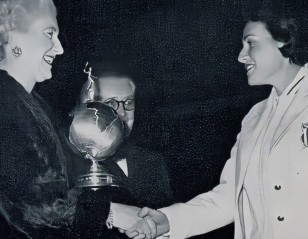
On This Day: USA Ace First Ever Uber Cup Final 18 March 2020
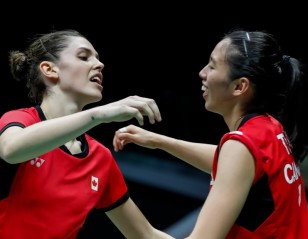
French Stint Aids Honderich & Tsai 5 March 2020
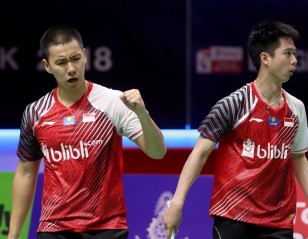
Indonesia, Japan Top-Seeded for TUC 4 March 2020

Russia’s TUC Withdrawal Opens Door for Germany, Spain 2 March 2020
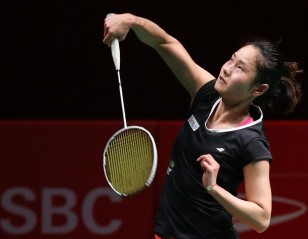
Qi Xuefei Inspired by ‘Role Model’ Pi Hongyan 29 February 2020
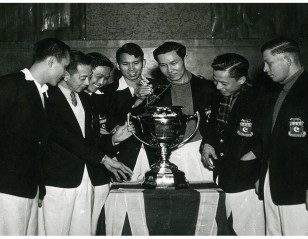
On This Day: Underdogs Malaya Become Inaugural Thomas Cup Champs 26 February 2020
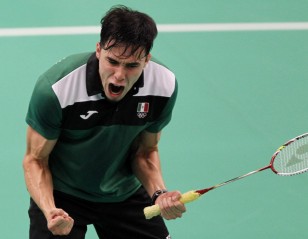
Flashback: Unfancied Mexicans Defy Expectations, Qualify for First Thomas Cup 23 February 2020

TUC 2020 Lineup is Complete! 20 February 2020
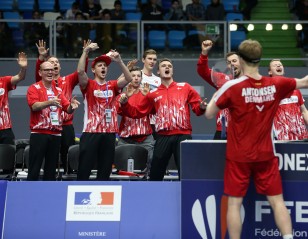
Flawless Denmark Issue Rivals Stark Warning 17 February 2020
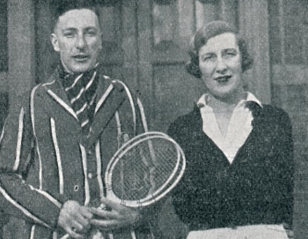
On This Day: Betty Uber Wins 50th Straight International 14 February 2020

Update on Badminton Asia Team Championships 2020 11 February 2020
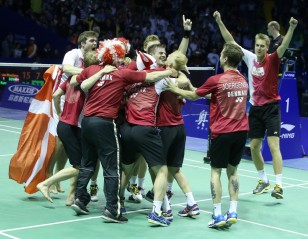
Aarhus Awaits the World 6 February 2020
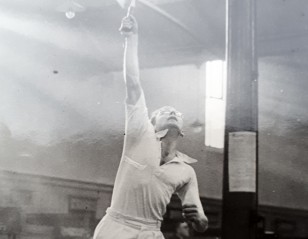
The Legacy of Frank Peard, First Thomas Cupper 7 October 2019
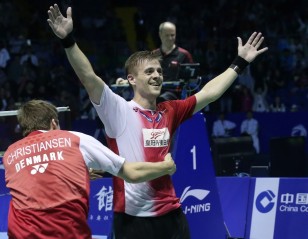
Flashback: Vittinghus Heroics Win Thomas Cup for Denmark 5 September 2019
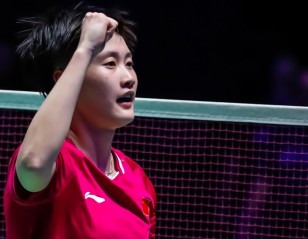
Generational Shift Will Be Visible in Aarhus 6 August 2019

BWF Major Event Hosts 2019-2025 Awarded 29 November 2018
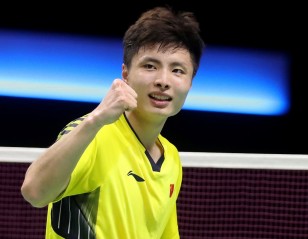
China’s Young Heroes – Thomas Cup Review 13 June 2018
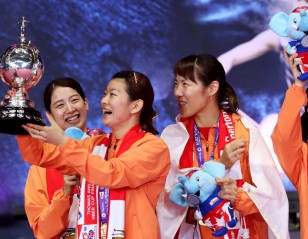
Japan Stamp Supremacy – Uber Cup Review 8 June 2018
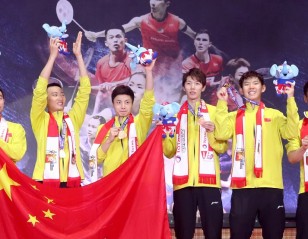
Title No.10 for China – Thomas Cup Final: TOTAL BWF Thomas &... 27 May 2018
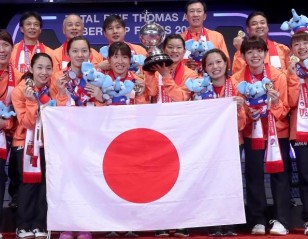
Women of the Rising ‘Stun’! – Uber Cup Final: TOTAL BWF TUC... 26 May 2018
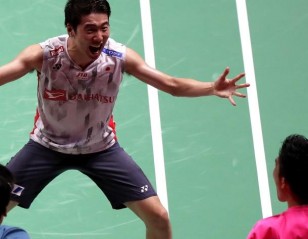
‘Tongue-Twisters’ Torment Titlists – Thomas Cup Semi-Finals: TOTAL BWF TUC Finals 2018 25 May 2018
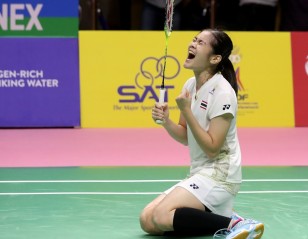
‘Uber’ Achievers! – Uber Cup Semi-finals: TOTAL BWF TUC Finals 2018 25 May 2018
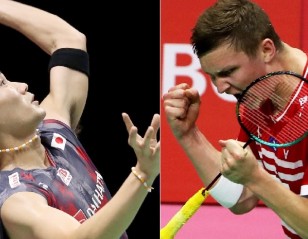
Denmark, Japan into Semis – Day 5 – Session 3: TOTAL BWF... 24 May 2018
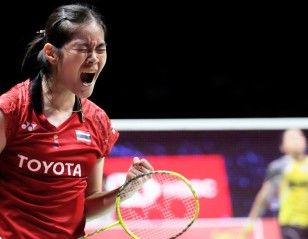
Emotional Win for Thailand – Day 5 – Session 2: TOTAL BWF... 24 May 2018
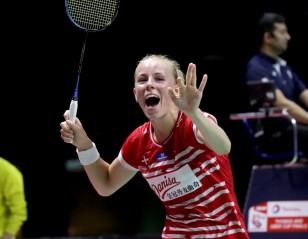
China, Korea Overcome Jitters – Day 5 – Session 1: TOTAL BWF... 24 May 2018
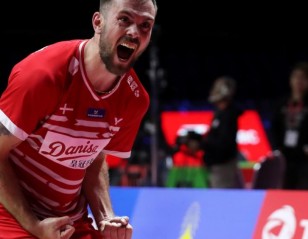
Jorgensen Delivers – Day 4 – Session 3: TOTAL BWF TUC Finals... 23 May 2018
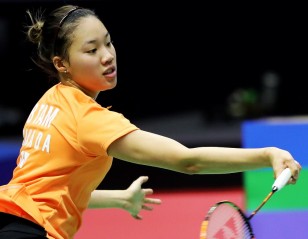
Canada Through to Quarters – Day 4 – Session 2: TOTAL BWF... 23 May 2018
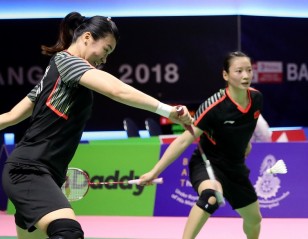
China Hold Firm – Day 4 – Session 1: TOTAL BWF Thomas... 23 May 2018
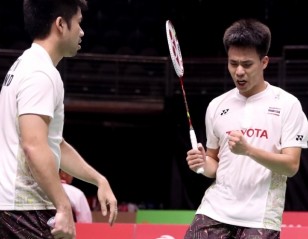
Resilient Indonesia – Day 3 – Session 3: TOTAL BWF TUC Finals... 22 May 2018
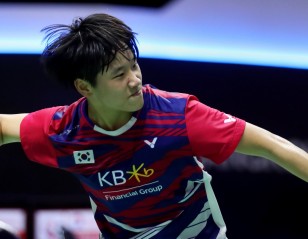
Schoolgirl to the Rescue – Day 3 – Session 2: TOTAL BWF... 22 May 2018

German Scare for Japan – Day 3 – Session 1: TOTAL BWF... 22 May 2018
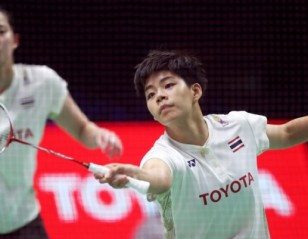
China, Thailand Look Ahead – Day 2 – Session 3: TOTAL BWF... 21 May 2018
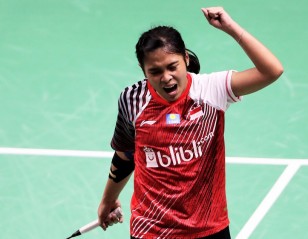
Indonesia Pass Malaysian Test – Day 2 – Session 2: TOTAL BWF... 21 May 2018
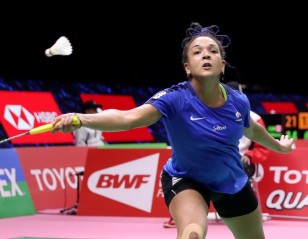
Debutants Relishing Experience – Day 2 – Session 1: TOTAL BWF TUC... 21 May 2018
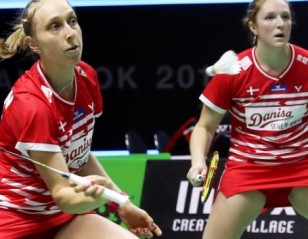
Korea Prevails – Day 1 – Session 3: TOTAL BWF TUC Finals... 20 May 2018
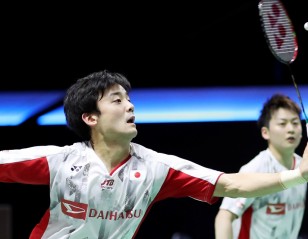
Japan Start Strong – Day 1 – Session 2: TOTAL BWF TUC... 20 May 2018

Corvee Stars in French Victory – Day 1 – Session 1: TOTAL... 20 May 2018
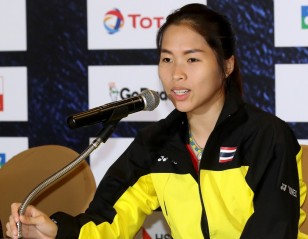
Banking on Home Support – TUC Finals 2018 19 May 2018

Defending Champions Confident Despite Setbacks – TUC Finals 2018 19 May 2018
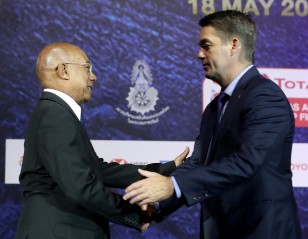
Honour for Fernandez, Sornprachum and Klutzke 19 May 2018
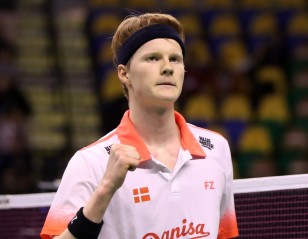
Strong Danish Line-up – Preview: Thomas Cup Squads 11 May 2018
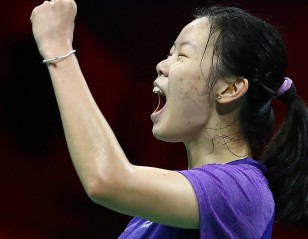
Li Xuerui Returns – Preview: Uber Cup Squads 9 May 2018
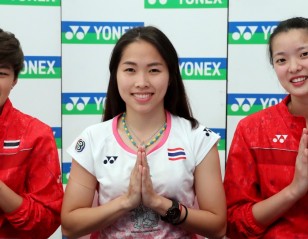
Bangkok Beckons! 2 May 2018

Indonesia, Japan Start ‘Thomas-Uber’ Action 12 April 2018
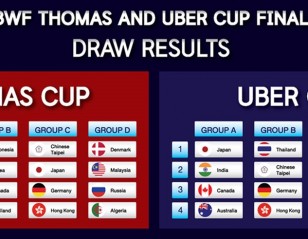
Japan in ‘Group of Death’ 22 March 2018

Hong Kong, France Qualify for TUC 2018 20 March 2018
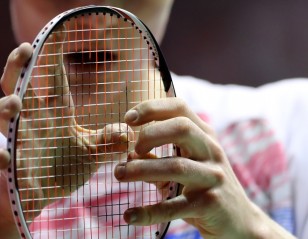
Fitness, Equipment in Focus at World Congress 4 March 2018
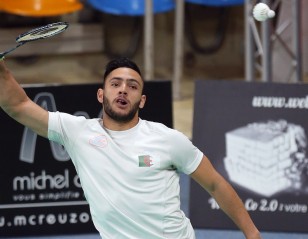
Algeria to Debut in Thomas Cup 26 February 2018
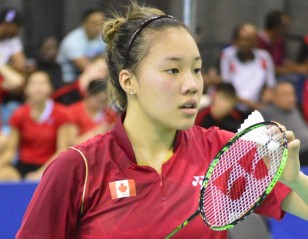
Canadian Supremacy – Finals: M&F Pan Am Team Championships 2018 19 February 2018
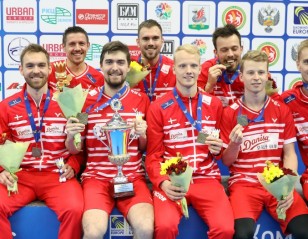
Denmark’s Reign Continues – Finals: 2018 European Men’s & Women’s Team Championships 19 February 2018
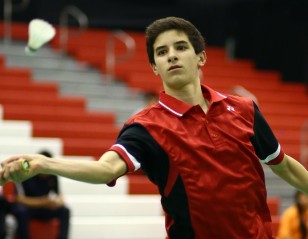
Peru Go Down Fighting – Day 3: M&F Pan Am Team Continental... 18 February 2018
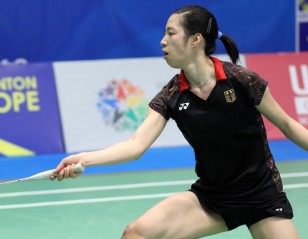
Germany in Title Bout – Day 5: 2018 European Men’s & Women’s... 18 February 2018
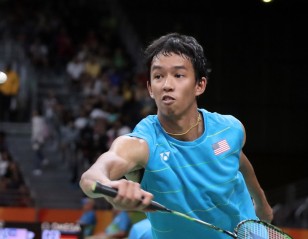
Jamaica, Peru in Semis – Day 2: M&F Pan Am Continental Team... 17 February 2018
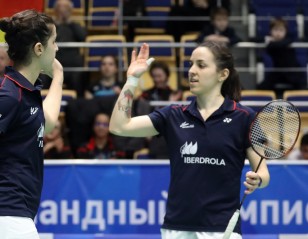
Spain Survive Turkish Challenge – Day 4: 2018 European Men’s & Women’s... 16 February 2018
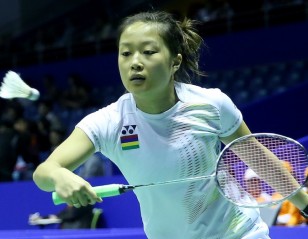
Algeria Make History – Finals: All Africa Men’s & Women’s Team Championships... 16 February 2018
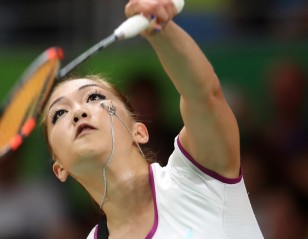
Tight Wins for Nigeria, Mauritius – Semi-finals: All Africa Men’s & Women’s... 15 February 2018
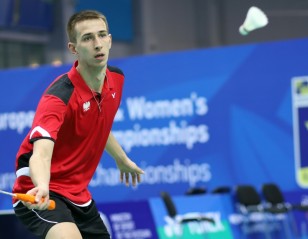
Poland Ease Past Portugal – Day 2: 2018 European Men’s & Women’s... 15 February 2018
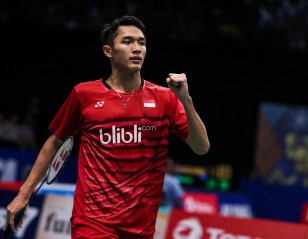
Indonesia, Japan Triumph – Finals: E-Plus Badminton Asia Team Championships 2018 12 February 2018
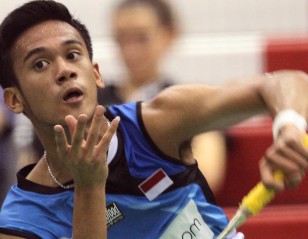
Kholik Stars in Indonesia’s Win – Semi-finals: E-Plus Badminton Asia Team Championships... 10 February 2018
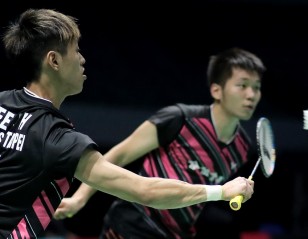
Chinese Taipei Outplay Thailand – Day 2: E-Plus Badminton Asia Team Championships... 8 February 2018
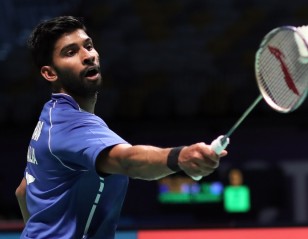
Australia Prevail in Thriller – Victor Oceania Team Championships 2018 7 February 2018
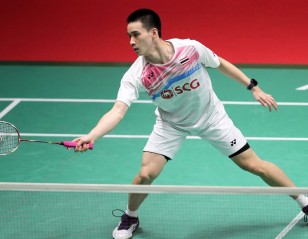
Close Win For Thailand – Day 1: E-Plus Badminton Asia Championships 2018 7 February 2018
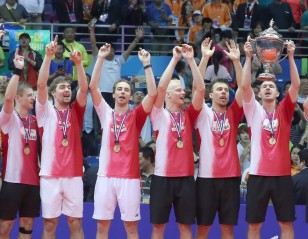
Continental Joust for TUC Qualification 2 February 2018
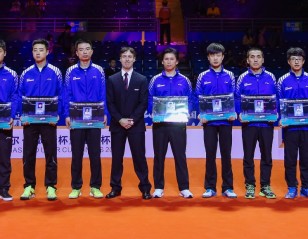
Li-Ning – A Stringing Success! 20 June 2016
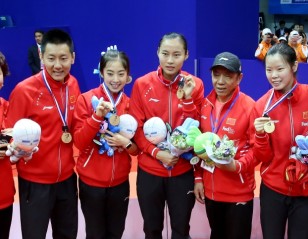
China Brook No Challenge – Uber Cup Review 27 May 2016
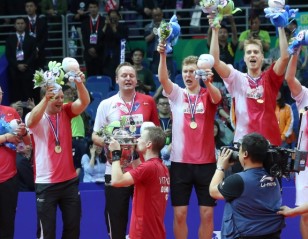
A Momentous Event for Europe – Thomas Cup Review 25 May 2016
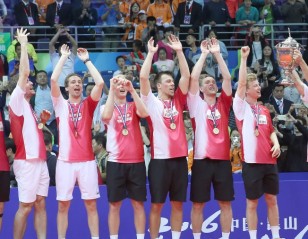
Denmark Crowned Kings of the World: TOTAL BWF Thomas & Uber Cup... 22 May 2016
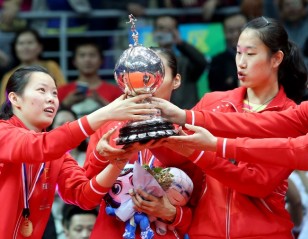
Title No.14 for China – TOTAL BWF Thomas & Uber Cup Finals... 21 May 2016
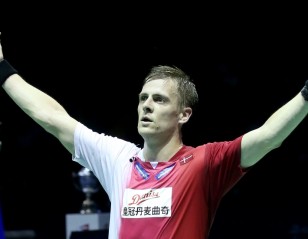
Denmark Fly High – Semi-finals Session 2: TOTAL BWF Thomas & Uber... 21 May 2016
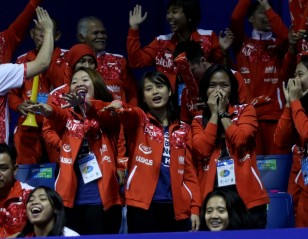
Indonesia Storm into Final – Semi-finals Session 1: TOTAL BWF Thomas &... 20 May 2016
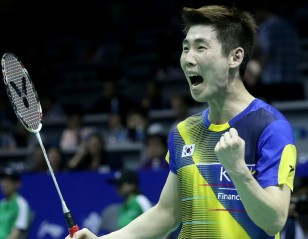
Korea Shock China; Japan Out – Quarter-finals Session 2: TOTAL BWF Thomas... 20 May 2016
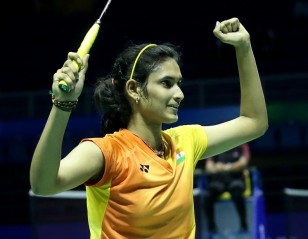
Shivani Aces it for India – Quarter-finals Session 1: TOTAL BWF Thomas... 19 May 2016
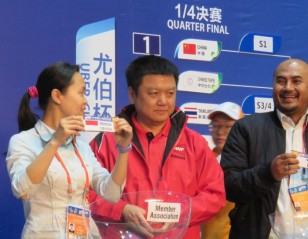
China Draw Korea in Thomas Cup Quarter-finals 19 May 2016
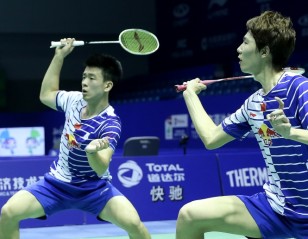
China Blow Away Japan – Day 4 Session 3: TOTAL BWF Thomas... 18 May 2016
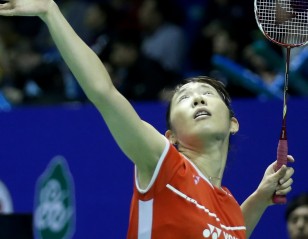
Japan Struggle to Beat India – Day 4 Session 2: TOTAL BWF... 18 May 2016
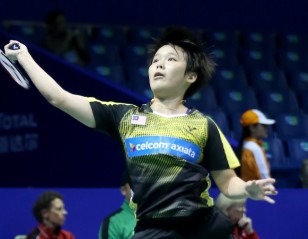
Denmark Top Group D – Day 4 Session 1: TOTAL BWF Thomas... 18 May 2016
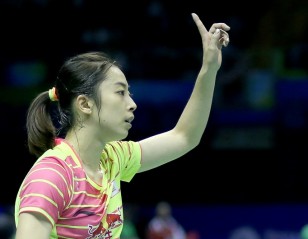
Indonesia Outclass Thailand – Day 3 Session 3: TOTAL BWF Thomas &... 17 May 2016
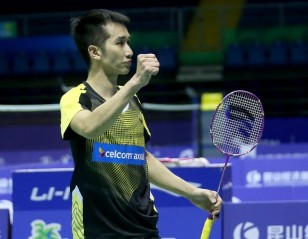
Korea Singed by Malaysian Singles – Day 3 Session 2: TOTAL BWF... 17 May 2016
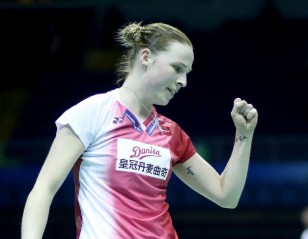
Kjaersfeldt, Madsen Drive Danish Success – Day 3 Session 1: TOTAL BWF... 17 May 2016
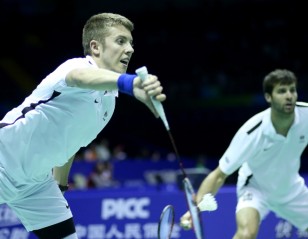
China Down Battling French – Day 2 Session 3: TOTAL BWF Thomas... 16 May 2016
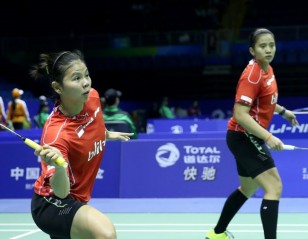
Indonesia Prevail Over Hong Kong – Day 2 Session 2: TOTAL BWF... 16 May 2016
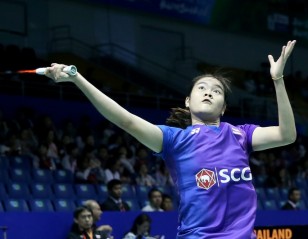
Thailand Continue to Cruise – Day 2 Session 1: TOTAL BWF Thomas... 16 May 2016
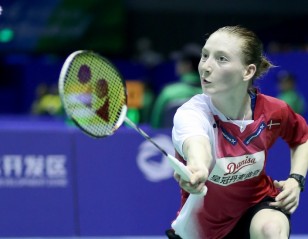
Madsen Swings it for Denmark – Day 1 Session 3: TOTAL BWF... 15 May 2016
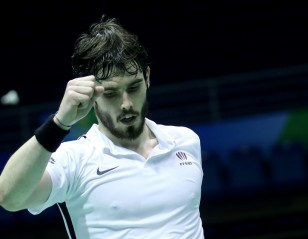
Japan Shaken by Inspired France – Day 1 Session 2: TOTAL BWF... 15 May 2016
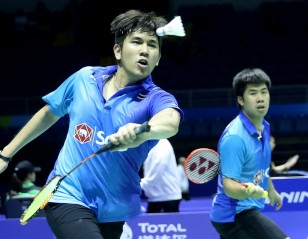
Strong Start by Thailand – Day 1 Session 1: TOTAL BWF Thomas... 15 May 2016
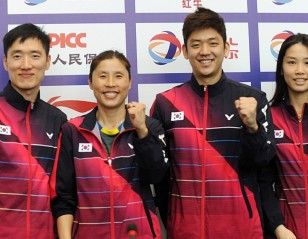
TOTAL BWF Thomas & Uber Cup Finals 2016: Opening Salvos Fired as... 14 May 2016
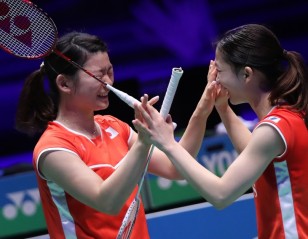
TOTAL BWF Uber Cup Preview: China, Japan Hold the Aces 12 May 2016
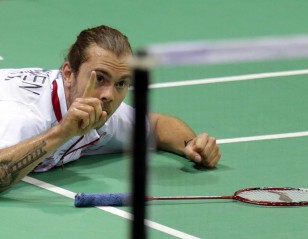
TOTAL BWF Thomas Cup Preview: Can Denmark Break the Jinx? 11 May 2016
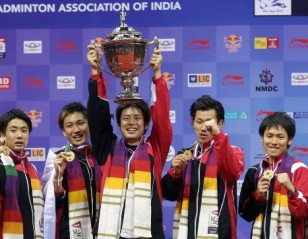
Japan Face French Obstacle in Thomas Cup Opener 19 April 2016
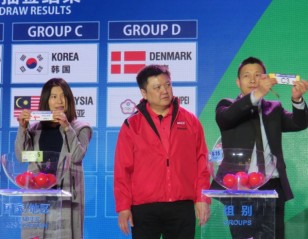
Powerhouses China, Japan in Group A of Thomas Cup 21 March 2016
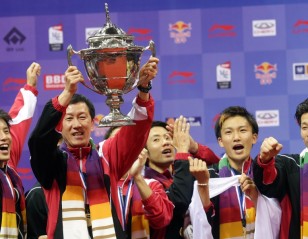
Defending Champions Japan Seeded 5th for Thomas Cup 4 March 2016
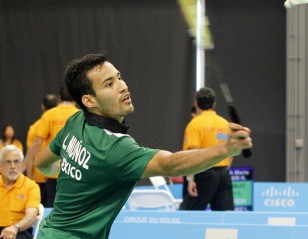
Mexico, New Zealand in Thomas Cup final round 23 February 2016
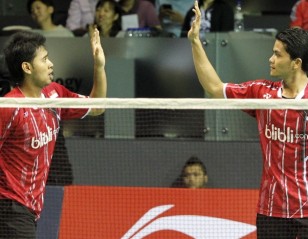
Indonesia, China Emerge Champions – Badminton Asia Championships finals 22 February 2016
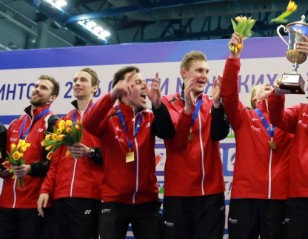
Denmark Unchallenged at the Top: European Men’s & Women’s Team Championships finals 22 February 2016
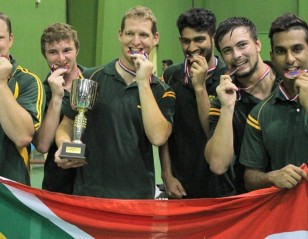
SA, Mauritius Crowned Champions: Africa Continental Team Championships finals 21 February 2016
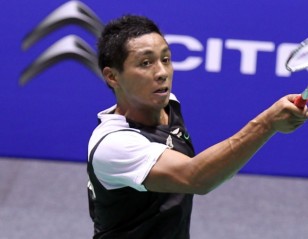
New Zealand, Australia Reign Supreme: Oceania Men’s & Women’s Team Championships finals 21 February 2016
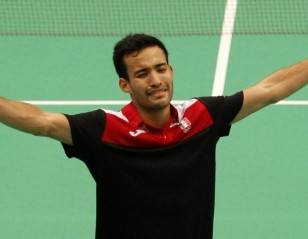
Mexico Clinch Men’s Title: Pan Am Team Continental Championships finals 21 February 2016
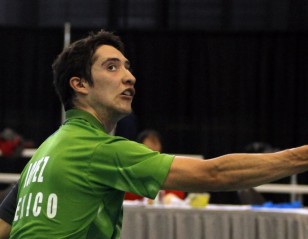
Mexico, Canada in Final: Pan Am Team Continental Championships – Day 3 20 February 2016
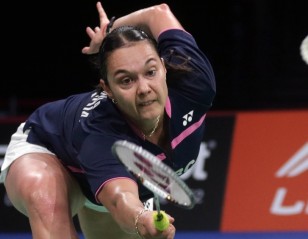
Bulgaria, Spain in Last-Four: European Men’s & Women’s Team Championships quarter-finals 20 February 2016
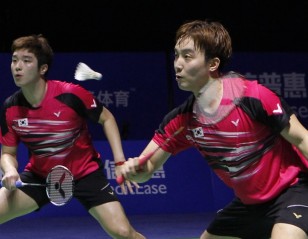
China Knocked Out – Badminton Asia Team Championships quarter-finals 20 February 2016
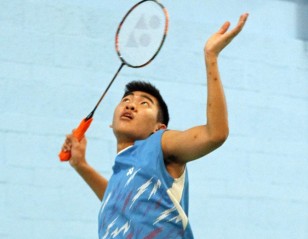
Garrido, Ho-Shue Shine: Pan Am Team Continental Championships – Day 2 19 February 2016
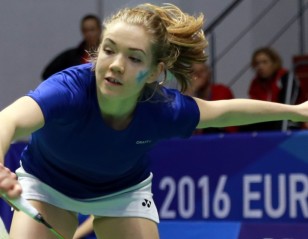
Finland in Quarter-finals: European Men’s & Women’s Team Championships – Day 3 19 February 2016
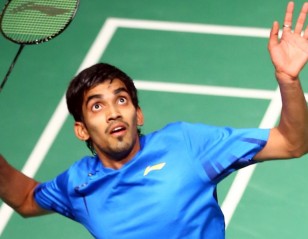
India Stun China: Badminton Asia Team Championships – Day 4 19 February 2016
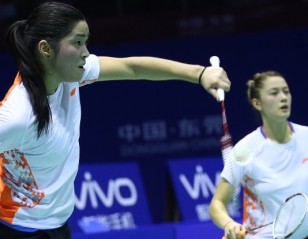
Australia Win Exciting Final – Oceania Mixed Team Championships 18 February 2016
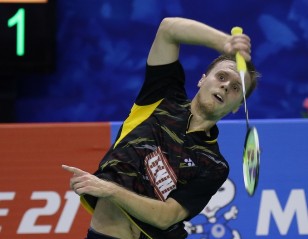
Estonia Edge Past Hungary: European Men’s & Women’s Team Championships – Day... 18 February 2016
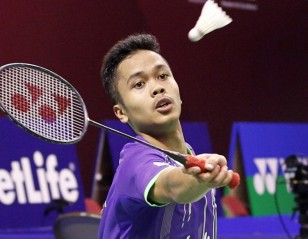
Indonesia Beat Chinese Taipei: Badminton Asia Team Championships – Day 3 18 February 2016
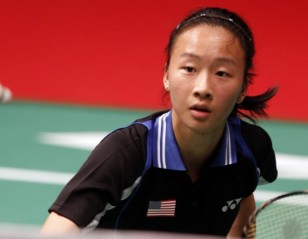
Iris Wang Guides USA to Win: Pan Am Team Continental Championships –... 18 February 2016
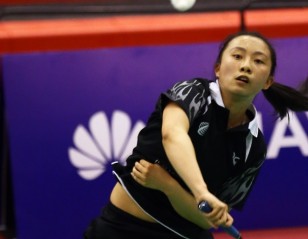
Easy for New Zealand: Oceania Mixed Team Championships – Day 2 17 February 2016
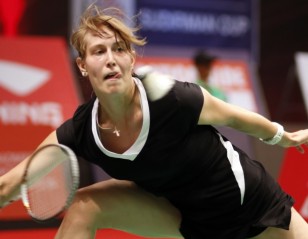
Narrow Win for Ukraine – European Men’s & Women’s Team Championships –... 17 February 2016
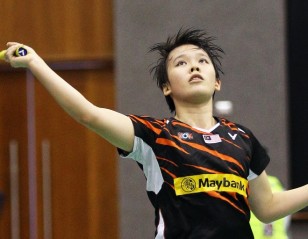
Close Shave for Malaysia: Badminton Asia Team Championships – Day 2 17 February 2016

Strong Start for New Caledonia – Oceania Mixed Team Championships Day 1 16 February 2016
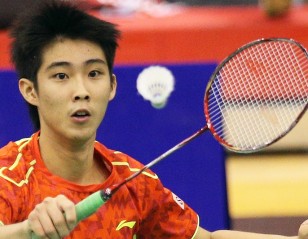
China Survive Scare: Badminton Asia Team Championships – Day 1 16 February 2016
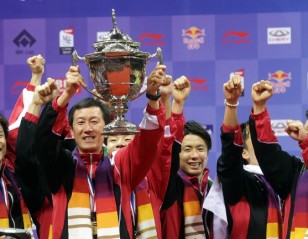
Li-Ning BWF Thomas & Uber Cup Finals 2014 – Day 8: Japan’s... 25 May 2014
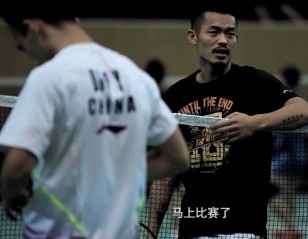
A Glimpse into China’s Preparation 25 May 2014
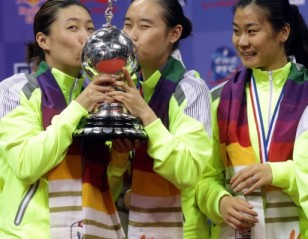
Li-Ning BWF Thomas & Uber Cup Finals – Day 7: China Retain... 24 May 2014
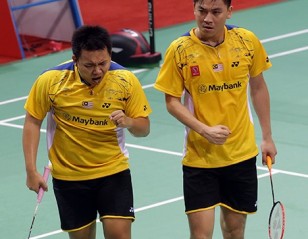
Li-Ning BWF Thomas & Uber Cup Finals 2014 – Day 6 –... 23 May 2014
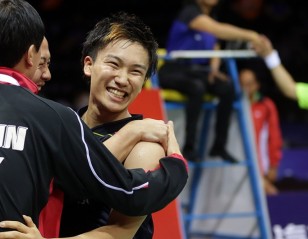
Li-Ning BWF Thomas & Uber Cup Finals 2014 – Day 6 –... 23 May 2014
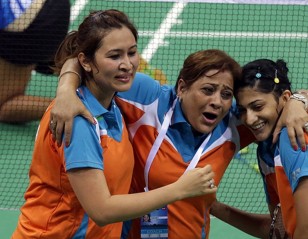
Li-Ning BWF Thomas & Uber Cup Finals 2014 – Day 5 –... 22 May 2014
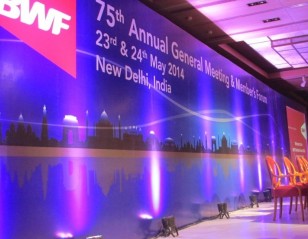
BWF Descends on Delhi 22 May 2014
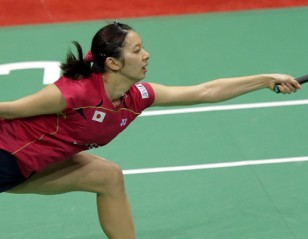
Li-Ning BWF Thomas & Uber Cup Finals 2014 – Day 5 –... 22 May 2014
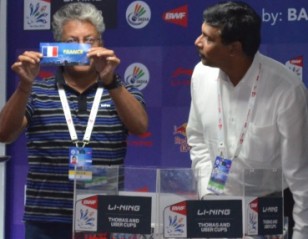
Li-Ning BWF Thomas & Uber Cup Finals 2014: China v Thailand in... 22 May 2014
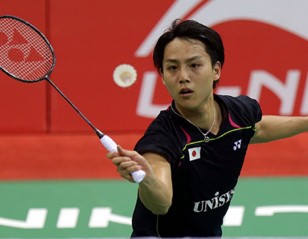
Li-Ning BWF Thomas & Uber Cup Finals 2014 – Day 4 –... 21 May 2014
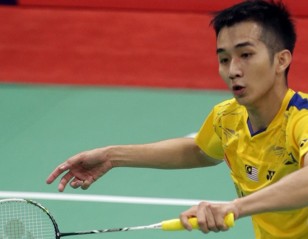
Li-Ning BWF Thomas & Uber Cup Finals 2014 – Day 4 –... 21 May 2014
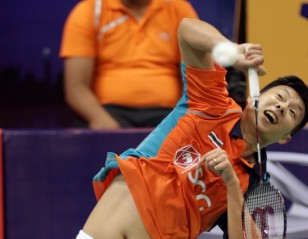
Li-Ning BWF Thomas & Uber Cup Finals 2014 – Day 4 –... 21 May 2014
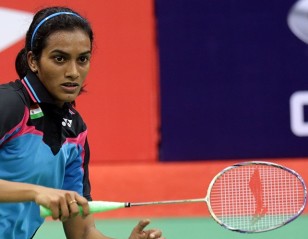
Li-Ning BWF Thomas & Uber Cup Finals 2014 – Day 3 –... 20 May 2014
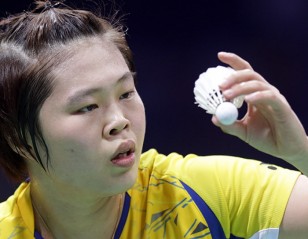
Li-Ning BWF Thomas & Uber Cup Finals 2014 – Day 3 –... 20 May 2014
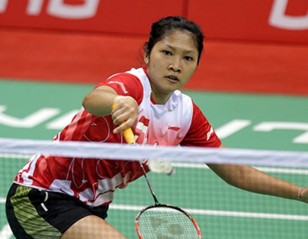
Li-Ning BWF Thomas & Uber Cup Finals 2014 – Day 3 –... 20 May 2014
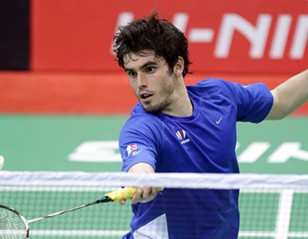
Li-Ning BWF Thomas & Uber Cup Finals 2014 – Day 2 –... 19 May 2014
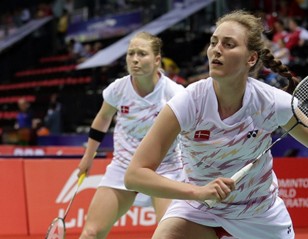
Li-Ning BWF Thomas & Uber Cup Finals – Day 2 – Session... 19 May 2014
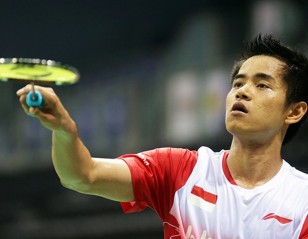
Li-Ning BWF Thomas & Uber Cup Finals 2014 – Day 2 –... 19 May 2014
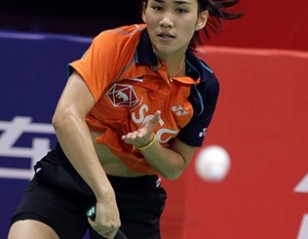
Li-Ning BWF Thomas & Uber Cup Finals 2014 – Day 1 –... 18 May 2014
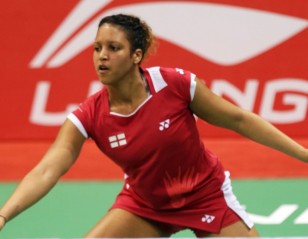
Li-Ning BWF Thomas & Uber Cup Finals – Day 1 – Session... 18 May 2014
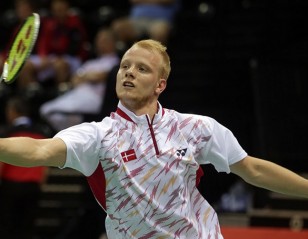
Li-Ning BWF Thomas & Uber Cup Finals 2014: Day 1 – Session... 18 May 2014
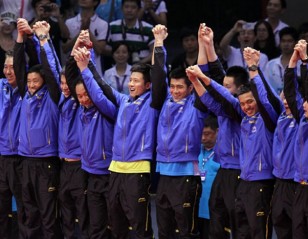
Li-Ning BWF Thomas & Uber Cup Finals 2014: Thomas-Uber Thrills Looming 18 May 2014
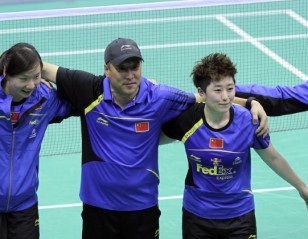
Li-Ning BWF Thomas & Uber Cup Finals 2014: Mix of Confidence and... 17 May 2014
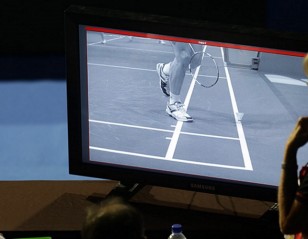
Li-Ning BWF Thomas & Uber Cup Finals 2014: Teams Can Use IRS 14 May 2014
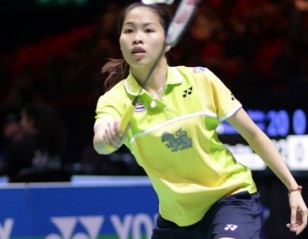
BWF World Championships 2014: Stellar Cast for Copenhagen Worlds 11 May 2014
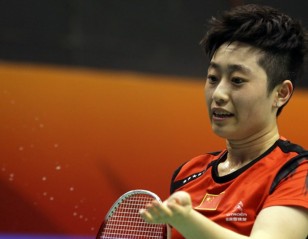
Li-Ning BWF Thomas & Uber Cup Finals 2014: Lin Dan; Lee Yong... 7 May 2014
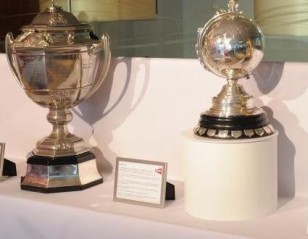
Li-Ning BWF Thomas & Uber Cup Finals 2014: Denmark, Japan Open Thomas... 28 April 2014

Li-Ning BWF Thomas & Uber Cup Finals 2014: China’s Lucky Draws 30 March 2014
